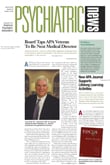With the announcement of the Nominating Committee’s selection of candidates for the 2003 election, the campaign season is officially under way, and members, particularly those wishing to support a candidate, will want to be familiar with the campaign guidelines.
The APA Elections Committee is charged with establishing procedures, with the approval of the Board of Trustees, for equitable voting of the membership. These procedures are documented in the election guidelines section of the Operations Manual.
Guidelines prescribing members’ election-related activities were established by the Board in the early 1970s, when APA began having contested elections. Restrictions on campaigning were initially adopted as an attempt to address at least four major concerns: (1) to guard against massive campaign efforts “buying” an election win, particularly if those efforts were financed by resources from outside the membership; (2) the revulsion against campaign committees, war chests, and unwelcome bids for public support; (3) the growing distress of the membership at being deluged with campaign materials; and (4) a feeling held by an unknown proportion of the membership that large-scale campaigning was unseemly and inconsistent with their conception of APA’s professional image. The concerns are as valid today as they were in the ’70s, and the guidelines continue to address them.
There are three sections to the guidelines: guidelines for the candidates and supporters; guidelines for those holding appointed or elected positions in APA/Area Councils/district branches; and guidelines for the use of electronic media.
The intent of the guidelines is “to encourage fair and open campaigning by APA members on a level playing field; foster opportunities for candidates to educate their colleagues about the issues and about their experiences and views; keep costs down; and maintain dignified and courteous conduct appropriate to the image of a profession.” Challenges to candidates’ records are permitted, but not to their character or institution.
Of utmost importance is the stipulation that candidates and their supporters must use their own resources for election activities (A.1 below). The limits on the number of letters that each person may write were established because the committee believes that 400 letters (or 100 for Area office) is a manageable number for any member wishing to support a candidate (A.2 below).
With the increased use of e-mail, the guidelines for use of electronic media should be noted carefully. While there are no limits on the number of campaign messages that may be sent by e-mail (A.3, first paragraph below), members wishing to support candidates in this way must include the words “APA Campaigning” in the subject line.
Further, the only APA-supported list serve that may be used for campaigning is Member-to-Member (A.3, second paragraph). List serves of other psychiatric organizations may be used for campaigning only if permitted by those organizations. These changes were recommended by the Elections Committee based on APA members’ responses to the campaign guidelines poll conducted by the Ad Hoc Committee to Review Election Policies and Procedures in September 2000 (Psychiatric News, November 17, 2000).
APA’s Web site will once again contain information about candidates, with links to the homepages of candidates who have Web sites.
The Elections Committee recognizes that there have been problems (and always will be) in implementing the guidelines and in creating guidelines that are inherently equitable, given the diversity of APA’s membership and candidates. However, the majority of members responding to the campaign guidelines poll indicated their satisfaction with the current guidelines. Members and candidates alike believe that the guidelines have achieved the objectives for which they were designed.
The Elections Committee encourages members to get involved in the election process, to support the candidates of their choice, and to encourage others to do so by writing personal letters to friends and colleagues or by personal contact. The committee is open to any suggestions the membership has to improve or change the guidelines. Most importantly, we encourage you to vote and to urge your colleagues to do the same. Ballots will be mailed January 6, 2003. Election information will be included in the December 6 issue of Psychiatric News. ▪
